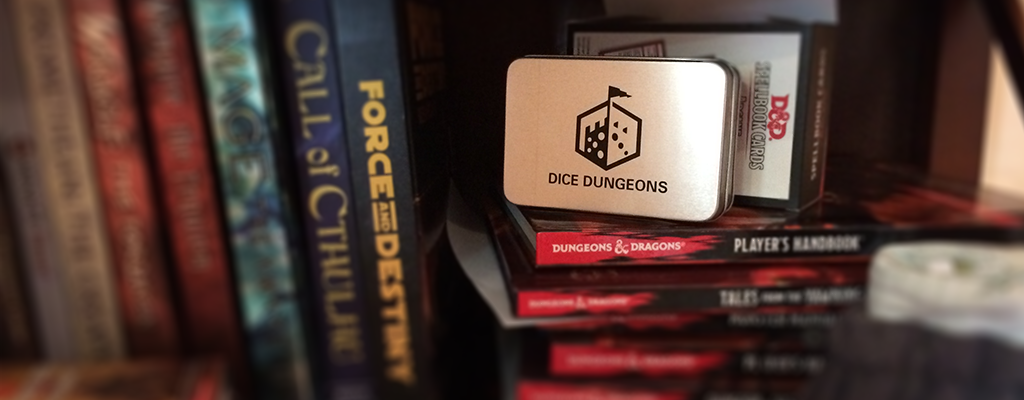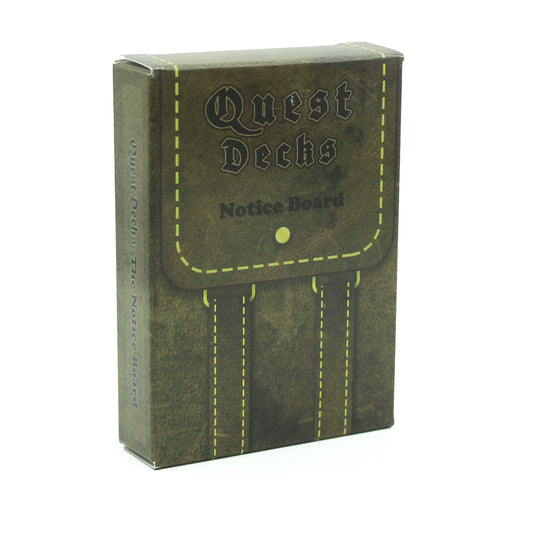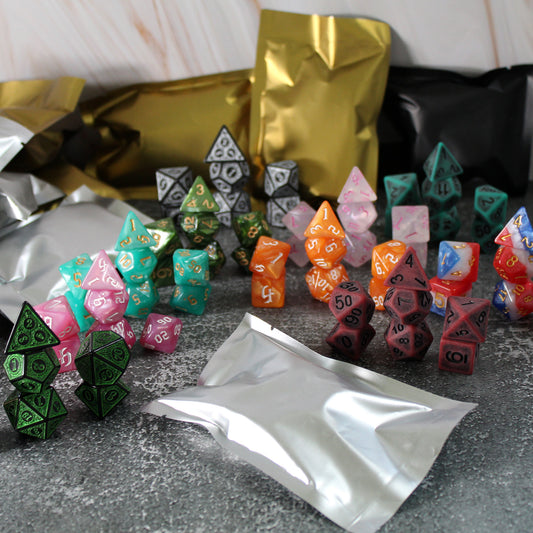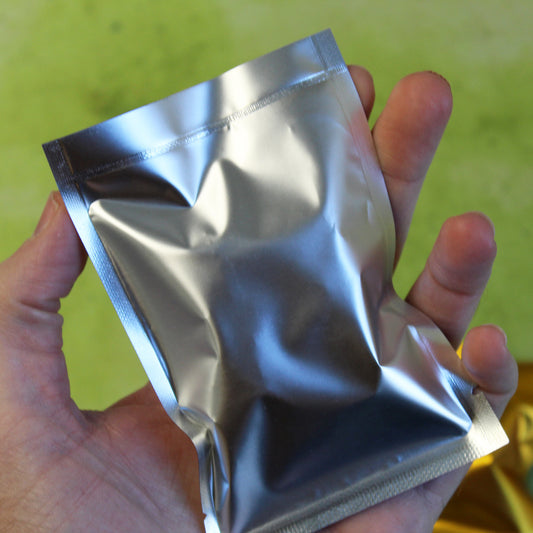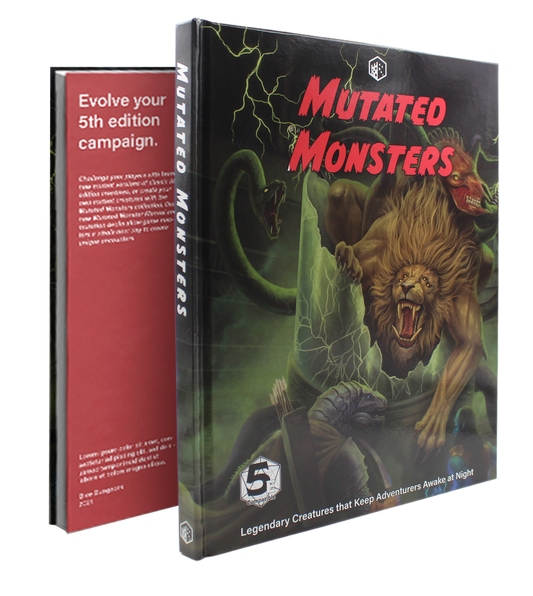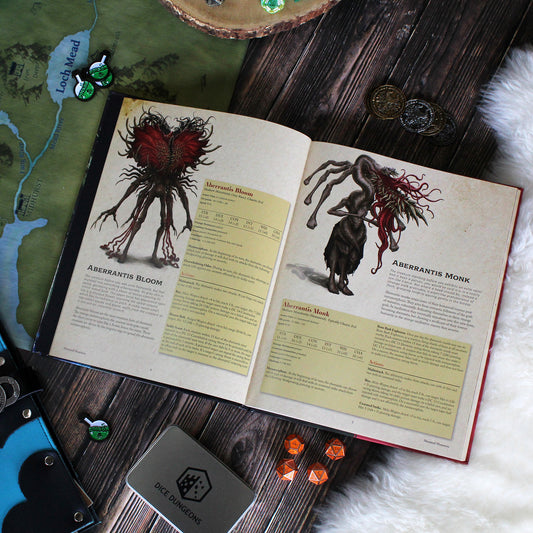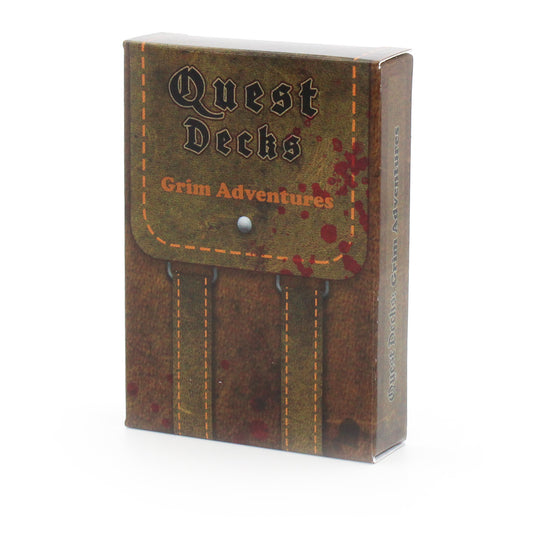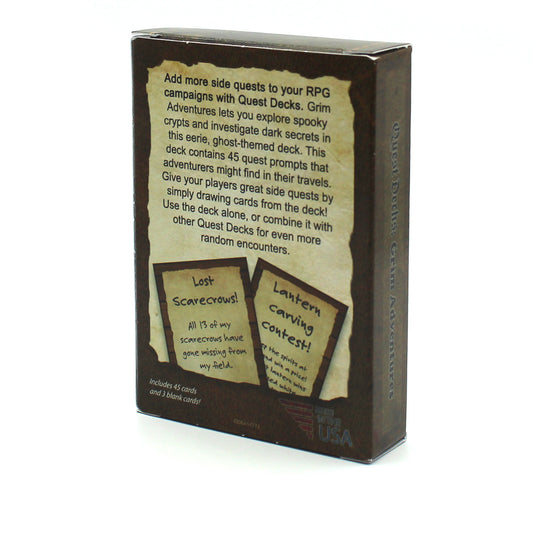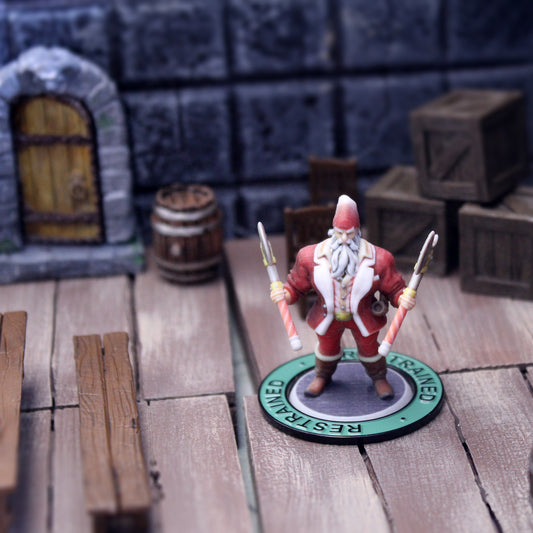Dungeons & Dragons 5th Edition (D&D 5E) has introduced a variety of new gameplay mechanics, while streamlining many older ones. One aspect that has changed significantly is the concept of surprise. In this blog post, we'll delve into the intricacies of surprise in D&D 5E, dispel common misconceptions, and discuss its impact on gameplay.
Who Is Surprised?
The first step of surprise is for the DM to determine who, if anyone, is surprised. Was the party trying to be stealthy (i.e. rolled a Dexterity (Stealth) check before the combat encounter)? If the party did not attempt to conceal their presence, then surprise is not an option.
It should be noted that the party does not have to be aware of a particular group of enemies to attempt a stealth check. They can simply say they are being stealthy because their surroundings are inherently dangerous. For example, as the party descends into a dungeon, they can declare that they are proceeding with care because there is likely danger ahead. When the PCs decide to move stealthily the DM should ask for Dexterity (Stealth) checks.
These Dexterity (Stealth) checks are compared to the passive Wisdom (Perception) scores of enemies within the dungeon. It is often a good idea for the DM to write down the passive perceptions of enemies to cut down on the time required to determine the outcome of the rolls. The wording surrounding stealth in 5e is vague enough to allow for either individual checks or a group check. A group check succeeds if at least half of the PCs succeed on their individual rolls.
Here is an example of determining stealth checks and surprise before a combat using a group stealth check:
A wizard, a cleric, a rogue, and a fighter enter a dungeon together. The party decides to move stealthily. The DM asks each party member to roll a Dexterity (Stealth) check. The rogue rolls a 19, the wizard a 16, the fighter a 15, and the cleric rolls a natural 1. The passive perception of an upcoming enemy is 14. Despite the cleric’s failure, at least half the party succeeded, meaning that the party can surprise the monster.
If the party is sneaking up to a group of enemies, some of the enemies may be surprised while others notice the party. Let us say that instead of only one enemy with a passive perception of 14, there are 2 goblins with14’s and an orc leader with 16. The party surprises the underlings, but the leader is not surprised.
Once it is determined that the party has surprised one or more enemies you should roll initiative as normal. This brings us to our next question…

What Exactly Is Surprise?
While not technically a condition in 5e, it can be helpful to think of it as one. A surprised creature cannot move or take actions during its turn in the first round of combat. A surprised creature can take reactions, but only after their turn in the combat round has finished. Going back to our example, the players would roll initiative for their characters while the DM rolls for the enemies. The initiative counter looks like this:
19 – The Rogue
18 – Goblin 1
15 – The Fighter
12 – The Orc
11 – Goblin 2
9 – The Wizard
2 – The Cleric
The rogue attacks and wounds goblin 1. On goblin 1’s turn they do nothing since they cannot move or take an action (this wording includes Bonus Actions for Rules as Written). The fighter rushes forward to engage the orc. In so doing the fighter provokes an attack of opportunity from goblin 1 as they move through the space. Goblin 1 uses their reaction to take the attack of opportunity since their turn has passed. The fighter also moves through goblin 2’s space, but since goblin 2 has not taken their turn yet they cannot use a reaction to attack the fighter.
But what if the orc leader attempts to warn their troops? Unfortunately, an unsurprised creature cannot cancel out surprise by alerting surprised creatures to the danger. Goblin 2 will remain surprised even if the orc calls out to get their attention. This holds true for the PCs as well should they find themselves ambushed in their adventure.
Once the first round of combat is over, the surprised “condition” goes away, and both the enemies and party act as normal.
Does Surprise Grant Advantage?
This one is a little trickier, but many (including myself) are inclined to say yes. While not inherent in the Surprise rules, the ambushing party may receive advantage based on the Unseen Attacker rules. When a creature cannot see its attacker, in this case because it is surprised, then the attacker gains advantage on their attack. The attacker also gives away their position whether the attack hits or misses.
A PC may attempt to hide again in combat after the initial ambush, however there are several caveats. The DM will have to agree that it is plausible for the PC to hide under the circumstances (is there cover? Are the enemies distracted? etc.). Once the DM approves the PC will need to take the Hide Action which means re-rolling their Dexterity (Stealth) check. Since the enemies the party surprised are now aware of the danger, this stealth check is made against each enemy’s active Wisdom (Perception) roll. Should the PC succeed in hiding, they may once again take advantage of the Unseen Attacker rules. However, they cannot surprise the enemy again as their opponents are already alert and defending themselves.

Does Stealth Slow Down Movement Speed?
As you can see, surprise has a lot to do with stealth. There is a common misconception in 5e that moving stealthily slows a character down. This is only partially true. In the case of long-distance travel moving with stealth reduces the party’s speed by 33%. Stealthy travel through a dungeon or encounter area, on the other hand, does not affect movement speed. A good rule of thumb is to think about what type of map you are using to track movement. If you are using a hex-map (such as the map of Chult in Tomb of Annihilation) then stealth reduces movement. If you are using a one-inch gridded battlemap (such as the maps of Castle Ravenloft in Curse of Strahd) then stealth does not reduce movement speed.
---
Need some D&D Gear? Dice Dungeons offers loads of gaming supplies including dice, accessories, and even our new Mutated Monsters 5e book.

